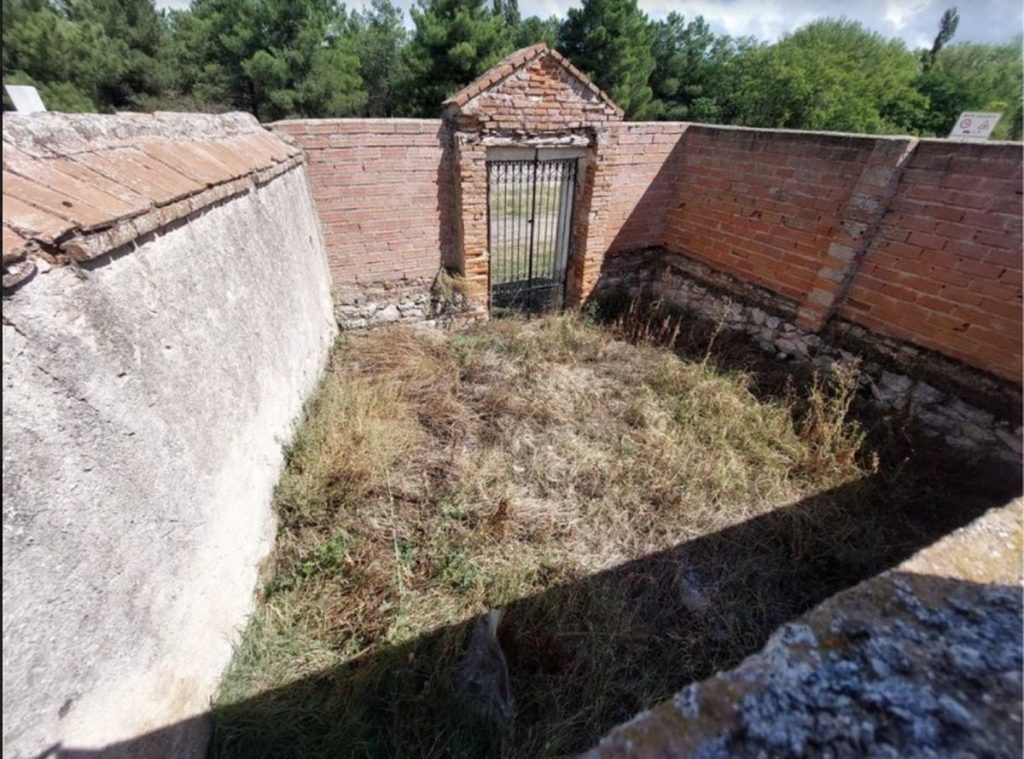Pedro de la Calle, a socialist pastor, will be the first to be exhumed in Castilla y León after the unveiling of the “concordia law” project, registered in the Cortes to replace the 2018 historical memory decree of the community governed by a coalition of PP and Vox. De la Calle was born in Alcazarén (Valladolid) in 1888 and died in August 1936 in the nearby village of Mojados. A Falangist faction first beat him, and days later, while picking chickpeas with his daughters, he was arrested and hanged from a pine tree. The death certificate cited “congestion and asphyxia,” as if he had died from respiratory complications rather than being executed. He was buried without identification in a field in Mojados, where he remained until the exhumation, which is set to begin this Tuesday. The works will be governed by the state Law of Democratic Memory from 2022 and the regional decree from 2018, according to the Association for the Recovery of Historical Memory (ARMH) who were contacted by the descendants.
The tasks will begin one day after the Government announced that it will take the new regional laws of the PP and Vox to the Constitutional Court for violating international law. This affects the Aragonese Concordia law and the projects in the Valencian Community and Castilla y León, where the majority of the coalition government predicts their approval despite criticism from the opposition and the central government. The still valid decree of Historical and Democratic Memory approved by the PP of Castilla y León in 2018 establishes the starting point in 1936, with the coup of the Nationalist faction, and condemned the Franco regime. In contrast, the new law, pending parliamentary processing and ratification, not only does not condemn Francoism – the PP spokesman stated that condemnation was “implicit” – but also moves the date to 1931, at the beginning of the Second Republic, a democratic period.
Marco Antonio González, vice president of the ARMH, criticizes the Castilla y León project both symbolically and for a specific article, 4.4, which specifies that “the projects must respect data protection legislation, and images, documents, or materials that may reveal the identities of those involved in the recovery process, including victims, their families, and anyone participating, cannot be publicly disseminated”. González points out that this creates a form of “censorship” that equates the victims with their killers: “We’re back to 1977, when people searched for their loved ones at night, without disturbing the murderers or those who supported them. You can’t even say the names of the victims or their perpetrators.”
The initiative of the association comes almost 20 years after Ángela de la Calle, the pastor’s daughter, requested the exhumation from the Mojados City Council. The Council ignored her, as they did with a letter in 2007 urging the body to be exhumed from the overgrown plot to be buried properly in the family pantheon, with a name, in the adjacent Catholic cemetery. The pastor’s daughter died in 2008, and it has been her son, the pastor’s grandson, who has claimed for the exhumation. Sources close to him state that he has been overwhelmed by the uproar and prefers to keep a low profile. A study commissioned by the Junta in 2020 when the PP and Citizens were in power in Castilla y León identified around 500 mass graves containing the bodies of approximately 7,000 victims.
The most crucial aspect is what happens closer to home. To stay informed, subscribe. Subscribe to continue reading Unsubscribe Unlimited access.


